By: Baptiste Caulonque

Endless Surf has been making a quick impact on the surf park industry since its launch in March of 2020. As the surf park industry continues to see explosive growth it is becoming increasingly difficult to compare wave technologies and their different offerings with no standard of criteria to do so. As part of Surf Park Central’s efforts to establish this standard criterion, we sat down to take a deep dive into Endless Surf with Baptiste Caulonque, Chief Commercial Officer. Baptiste answers questions ranging from wave production to current developments to technology comparisons.
There remains a lot of confusion out there about different claims to energy efficiency and it is legitimately difficult to make an apples to apples comparison between technologies. Can you clear up what can be misleading when looking into this?
Power consumption per wave can be easily misleading as it will fluctuate depending on multiple factors such as wave height, ride length, wave frequency and wave profile. Ride length itself can even be misleading. The ride length which needs to be compared to the power per wave is ride length at maximum height.How many advanced waves are produced? How many advanced riders are possible from one pulse?
When the pool is used in dual mode (creating lefts and rights simultaneously), The ES4800 can create a maximum of 500 to 600 advanced waves in an hour. There will be a single advanced rider per wave in The Peak zone.

How large is this wave at the beginning, and how large is it at the end? What is the size decay from beginning to end?
The wave will take a few chambers to reach maximum height, up to 7ft, and will not lose any height during the whole ride length. The wave will only start to decay after the it passes the end of the wave generation where it will become softer and can be used for more beginner/intermediate riders.How long is the ride in seconds?
When the pool is used in dual mode the ride with maximum wave height will be 10 to 12 sec. In single mode (a wave in one direction from one end to the other) the wave will have 26 sec of ride at maximum height.
What is the character of the wave – plunging or spilling?
The wave is primarily designed to be of the best quality, being of plunging character. But, operators can tone the wave down to more a spill to follow the progression of surfers from beginner to advanced. With our backend wave programming software, we can design the wave section by section to change its character during the generation.
Are any secondary waves produced from this pulse or can the wave be rebroken? If so, how many (rider capacity), how large, how long, and what character of wave.
There are two types of secondary waves and Endless Surf uses both:
- Waves coming from passive energy (i.e. broken waves). This wave will have lost a lot of its energy and the flow will be really turbulent so will need some distance to clean up.
- Waves coming from active energy (i.e. unbroken waves). There is no more generation to add energy to this wave but the flow is really clean and the wave still have some energy.

THE SHORE will reuse the passive energy from the broken waves of the THE PEAK, making a really wide 0.6m wave perfect for first-timer to go straight for 10 seconds. THE INSIDE will reuse the unbroken part of the main wave to reform into a more mellow wave and break for 6 to 8s.
We have heard about Endless Surf projects in pre-development in Paris, Vietnam, the Dominican Republic, and on Australia’s Gold Coast. Can you share any further details about the progress of these projects?
The Club at Parkwood (Gold Coast, Australia): A $200mil mixed-use development surrounding surf and golf with an ES4800 and an anticipated opening of 2023. Read more here.
SURFTOWN MUC (Munich, Germany): A surf and lifestyle development to enhance the vibrant surf culture surround the Eisbach river wave. Located close to Munich International Airport with an anticipated opening of 2023. Read more here.
La Vague Grand Paris (Paris, France): A board sports lifestyle haven featuring an ES4800, a skatepark, a deep flow surf simulator, and a boardwalk with retail, restaurants, and more. We’re anticipating a 2024 opening. Read more here.

Los Vientos Resort (Punta Cana, Dominican Republic): A resort development featuring an ES4800 surf pool for hotel and public guests and possibly an ES2400 for the most premium bit of the hotel. Anticipated to open in 2024. Read more here.
Surf the Wave (Ho Chi Minh City, Vietnam): A large mixed-use residential community to support a rapidly growing tech hub with an ES3600. Read more here.

Surf & Play (Melbourne, Australia): A community entertainment center featuring an ES2000 and a surrounding aquapark. Anticipated opening is 2024. Read more here.
Are they all going to be 48 chamber pools or are smaller footprint pools in the works as well?
Our approach at Whitewater is first to discuss the client’s envisioned business model based on the available land to work with. This is what triggers the relevant Endless Surf model to be considered. Endless Surf’ s footprint is a combination of the number of chambers and the pool design (compact or regular side wall length). It offers a variety of footprints enabling the greatest ROI factoring in every revenue stream – surf pool, beach, and surroundings.
Our smallest development is an ES1600 (16 chambers) and our largest is an ES5600 (56 chambers). Really, the footprint can be scaled to pretty much any developer’s desires or restrictions. However, Endless Surf’s “most desired” (to date) is the 48-chamber version with the extended walls.
Pneumatics are widely touted as being the most flexible technology available. Where are the limits of this flexibility? Can you simultaneously produce expert-only waves and intermediate waves (e.g. can you use different parts of the pool differently)?
Pneumatics offer an amazing level of flexibility. It can maximize surfers’ satisfaction, improve the occupancy level, and control operators’ operating expenses.
We like to consider many different skill levels that surfers will come with, from first-timers, to experts (for now, let’s leave pro surfers aside for obvious reasons). Beginners to experts could all ride within The Peak zone (waves with primary energy from the chambers), depending on the type of wave that is being programmed by the operator. 1st timers will ride The Shore zone and quickly progress to The Inside (waves using the secondary energy or the “reform”) along with other surfers wanting a fun but mellow wave.

Now, let’s dive into the flexibility…
The wave type and duration will be optimized by the operator to satisfy his or her occupancy. For example, an ES4800 can offer up to 26 seconds of ride time pumping a single wave from end to end. For typical hourly operations, the operator will most likely utilize both sides of the heart-shaped pool, catering to a higher capacity of surfers. Lefts and rights would be around 12 seconds long with core wave types that are situated at the center of the pool. However, combinations of ride times are pretty much endless, as you could program a wave along any section of the back wall. For example, you could pump out an 8-second right-hander with an air section, or perhaps a 16 second left-hander with a combination of turns and barrels, then alternate sides.


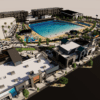
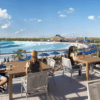
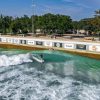
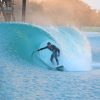
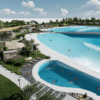
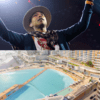
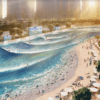
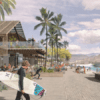
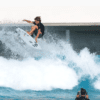
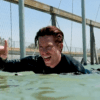

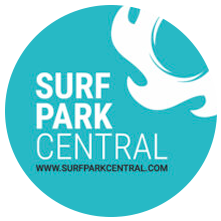



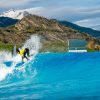
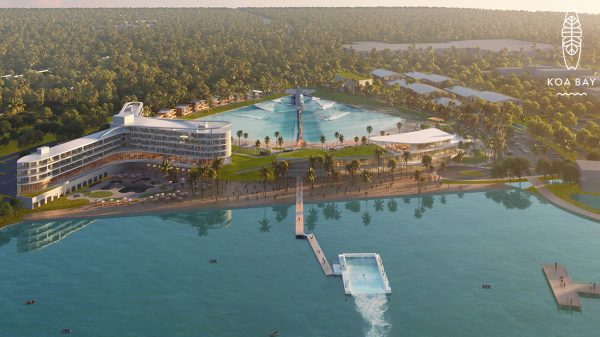
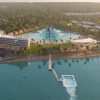
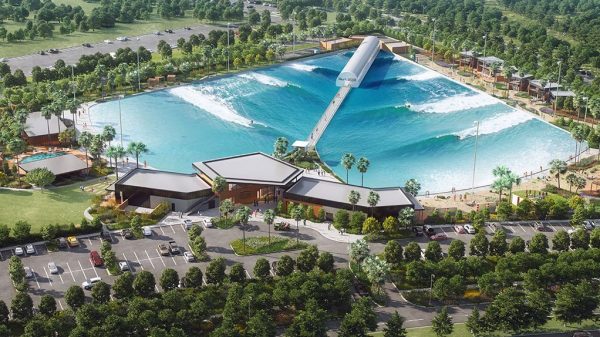
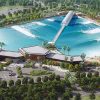
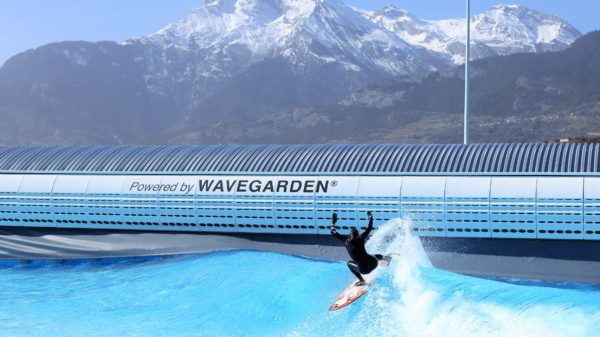
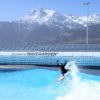
You must be logged in to post a comment Login